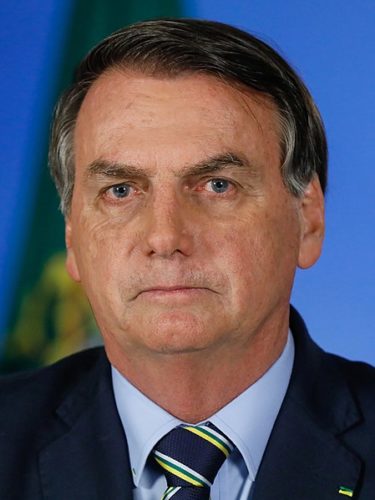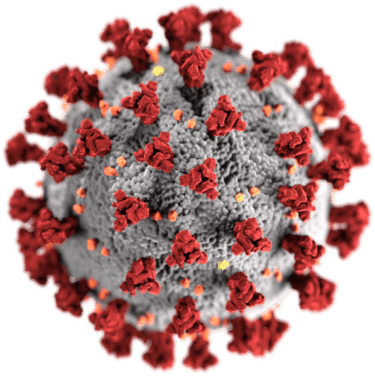From the small number of participants, the very loose controls, the statistical sleight of hand, and the cherry-picking of data points, we could easily have been looking at one more run-of-the-mill “homeopathy works!” paper; totally forgettable and easily forgotten, a good sparring tool for a fledging skeptic. Yet this was no homeopathy paper: it boasted the signature of one of the most-cited microbiologists in the world, involved legitimate drugs, and promised to cure people infected by a pandemic virus.
The study in question – “Hydroxychloroquine and azithromycin as a treatment of COVID-19: results of an open-label non-randomized clinical trial”, by the team of French superstar-microbiologist Didier Raoult – claimed to identify a miracle treatment for COVID-19 in the form of antimalarial and antibiotic drugs currently used by malaria and lupus patients. After the paper was presented to the media (taking place, of course, prior to publication in a journal of negligible impact), it received a mixed reception around the world. Britain and Italy simply ignored it; in the US, Donald Trump liked it, and publicly touted it in his daily press briefings. But in Brazil, fell head over heels in love with it.

Bolsonaro had been pushing against social distancing and quarantine measures ever since they were adopted by city mayors and state governors, and recommended by his own Minister of Health (following guidelines from the World Health Organization). Perhaps he saw the hydroxychloroquine craze as a way to push even harder. What is clear is that after he sang the praises of the drug, within hours it had vanished from pharmacies and drugstores, putting the people who really needed it in grave danger.
The “cancer cure” scandal in Brazil
The Brazilian skeptic movement was awakened out of a kind of coma in 2015, when a retired Chemistry professor became a national celebrity by touting a “miracle cancer cure”. Back then, skeptics and “quackwatchers” went into the fray with a large portion of the mainstream Medical and Scientific communities by their side; the defenders of the “miracle cure” were mostly media personalities and politicians (including Bolsonaro, then a Member of Parliament).
Today, however, we suddenly find ourselves quite alone. Blinded by Raoult’s reputation, intimidated by the president’s endorsement or just too eager to embrace any shred of hope that presents itself, scientists who were vocal opponents of that miracle “cancer cure” now seemingly overlook the many problems and signs of misconduct in the study, and declare hydroxychloroquine “promising”.
The Ministry of Health, who during the “cancer cure” crisis never even contemplated giving the “miracle” pills to patients of SUS (the Brazilian counterpart to the NHS), produced a technical note instructing doctors in the use of hydroxychloroquine for COVID-19.
The Albert Einstein Israelite Hospital, one of the finest medical centers in Latin America, launched a very weak “study” – without placebo group and very weak controls – of hydroxychloroquine for COVID-19. This so-called “clinical trial” is so flawed in its design that it can’t do anything but show “positive” or “indefinite” results. A Chinese study, small, but with decent controls, that found no benefit of hydroxychloroquine against the new coronavius, was available when the Albert Einstein Hospital published its design, but was blatantly ignored. What gives?
Science and skepticism in Brazil
Sadly, it looks like here in Brazil, science and skepticism don’t walk hand in hand, as they ought to. Critical thinking must be learned, preferably from a young age, if we wish to prevent this kind of misconceptions in the future. The fact that many undergraduate and graduate science students believe in pseudoscientific claims such as astrology, homeopathy and UFOs shows us that we are failing. While on one hand, this behavior may seem harmless, on the other hand, its potential to do harm becomes clear in an emergency situation like a pandemic, when decisions must be made quickly. To ensure that these decisions will be science based, we need people to be science based too.
And if we can’t get scientists and health professionals to think critically under stress, we are in deep trouble. What are the main differences between the cancer miracle cure hype in Brazil, and the chloroquine hype now?
First, the situation. A pandemic causes people to panic in fairly large numbers, and for several reasons: they are afraid of dying, and of losing their significant others, and they want to go back to their normal lives. The need to believe in a miracle cure that can end this situation faster is greatly enhanced.
Secondly, the appeal to authority, which to most skeptics is a fallacy we train ourselves to try to spot, goes unnoticed by most scientists.

The proponent of the miracle cancer cure, Gilberto Chierice, was a Chemistry professor from a small campus of a Brazilian university. The proponent of chloroquine, Didier Raoult, is one of the world’s most published scientists, director of a hospital and recipient of several awards, which may have led people to overlook the weakenesses of the hydroxychloroquine study. People put their belief in Raoult, rather than critically examining his studies – and the fact that he chose to broadcast the “cure” himself, on YouTube, before the paper was even published in preprint, certainly didn’t help.
Spotting red flags
It was easy for skeptics to see the red flags: announcing to national news before peer review, using bad scientific methodology, cherry picking of data, the lack of proper controls, withholding data, the list goes on. These are not new to anyone used to analyzing medical quackery, but without training in spotting methodological flaws, even medical and science professionals were fooled. Doctors said that they had a “feeling” it would work. Scientists told us that “during a war we should bend the rules”. Unfortunately, basing medical interventions on gut feelings brought us bloodletting, mercury poisoning for yellow fever and a vast array of alternative medicine. And while we may need to bend the rules during a pandemic, if we bend them this far, we’ll break!
A study conducted by professors Raymond Hall and Kathleen Dyer in State California University demonstrated the need to teach critical thinking to undergraduate science majors, in a more direct way than just teaching scientific method. They showed that it is necessary to teach students how to differentiate science from nonsense. After completing their course, the majority of students were able to overcome unwarranted beliefs. Perhaps, given such training, those students would have sees through the chloroquine hype which bewitched so many. Perhaps it’s time for skeptics to press for the inclusion of critical thinking in basic education. It could be the only way to prevent the next generation from being fooled during a time when we need them to trust science the most.



